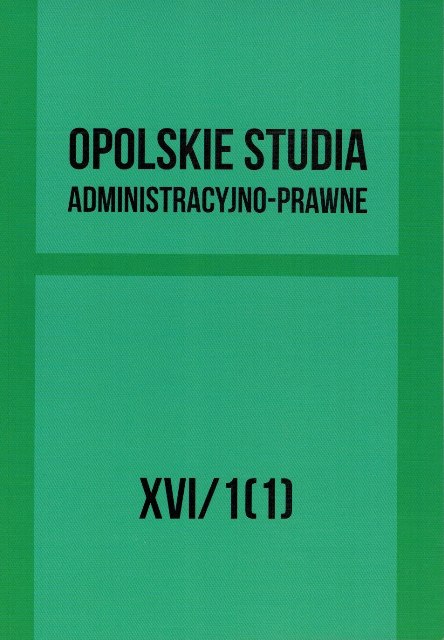Uprawnienia kontrolne w samorządzie terytorialnym w świetle nowelizacji z 2018 roku
Power of control in local government in the light of the amendment of 2018
Author(s): Barbara Jaworska-DębskaSubject(s): Constitutional Law
Published by: Uniwersytet Opolski
Keywords: control; councillor; local government
Summary/Abstract: Within the existing model of control in local government, the domineering position was held by a legislative and controlling body, realising its controlling functions mainly through an audit commission, other commissions and in pleno. Its control extended over the activity of the executive body, local government organisational units, and – within a municipality – auxiliary units. Within this model, a councillor did not have any statutory individual controlling competences. The Bill on Amending Certain Acts in Order to Increase the Participation of Citizens in the Process of Electing, Functioning and Controlling Certain Public Bodies (print no. 2001 of 10 November 2017; www.sejm.gov.pl) has given the councillors aset of competences in the area of controlling, which cannot be subject to clear assessment. Without any doubt, a positive aspect is giving the councillors the right to make major parliamentary questions and queries, which until now has only been granted in the bylaws of local governments. However, granting the councillors individual controlling rights shall be deemed negative. The basic drawbacks of this solution give us the basis to conclude that they will not have a negative impact on the image of a councillor as a member of a legislative and controlling body, and – in consequence – on the image of the local government among local communities.
Journal: Opolskie Studia Administracyjno-Prawne
- Issue Year: XVI/2018
- Issue No: 1(1)
- Page Range: 55-64
- Page Count: 10
- Language: Polish

